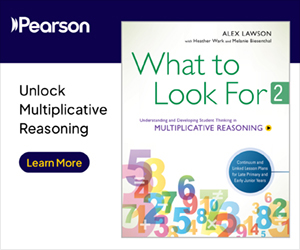Kwantlen Polytechnic University (KPU) researchers have uncovered a link between symptoms of attention deficit hyperactivity disorder and how women experience partnered sex.
Published in The Journal of Sex Research, "Exploring Attention-Deficit/Hyperactivity Disorder (ADHD) Symptomatology in Relation to Women's Orgasmic Consistency" found that women who experience ADHD symptoms, particularly those related to inattention, may have greater difficulty regularly achieving orgasm.
The large-scale study, by Tina Jensen-Fogt under supervision from KPU psychology instructor Dr. Cory Pedersen, surveyed 815 sexually active cisgender women aged 18 to 84.
"Women with inattentive features -- such as difficulty focusing or staying present -- showed the lowest rates of orgasmic consistency," says Jensen-Fogt, who recently graduated with a Bachelor of Arts, Major in Psychology (Honours) from KPU. "That was a really important and novel finding."
The inattentive subtype of ADHD, which is more commonly seen in women, is characterized by cognitive distraction, executive functioning challenges, and internalized symptoms that are often overlooked in clinical settings. This internal distraction, Jensen-Fogt explains, may inhibit one's ability to remain mentally and physically engaged during sexual activity -- a key factor in achieving orgasm.
"We're used to seeing sex research on ADHD focus on risky or impulsive behaviour, but not nearly enough attention has been paid to the impact on sexual pleasure and well-being," she says. "This study starts to change that."
Pedersen emphasizes the broader significance of the findings, with potentially far-reaching implications for mental health, relationship satisfaction and therapeutic interventions.
"The long-term goals for this research include informing educational interventions for women with ADHD," says Pedersen. "It's important to understand what sexual difficulties are more commonly experienced so that we may better support women in living sexually healthy and fulfilling lives."
The study also explored the role of ADHD medication in sexual functioning. Women who used ADHD medications but did not meet the study's criteria for ADHD symptomatology experienced higher orgasmic consistency. However, this effect was not found in those who met the criteria for ADHD, suggesting that further research is needed.
"Medication use is an area that warrants a lot more exploration," says Jensen-Fogt. "But it's clear that the relationship between ADHD, sexual functioning and treatment is complex."
The research was supported by a Student Research and Innovation Grant and conducted through an anonymous online survey using validated psychological measures. Jensen-Fogt is now a research assistant with Pedersen's ORGASM (Observations and Research in Gender and Sexuality Matters) lab at KPU.
"Ultimately, I hope this work helps women feel seen and validated," says Jensen-Fogt. "If you're struggling with something like sexual satisfaction or orgasmic consistency, and you have ADHD -- or think you might -- it's important to know that you're not alone, and that there might be a real neurological explanation behind it."
KPU offers a variety of psychology degree programs, including a Bachelor of Arts, Major in Psychology, Bachelor of Science in Applied Psychology and Bachelor of Arts, Major in Human Behaviour and Applied Psychology.












